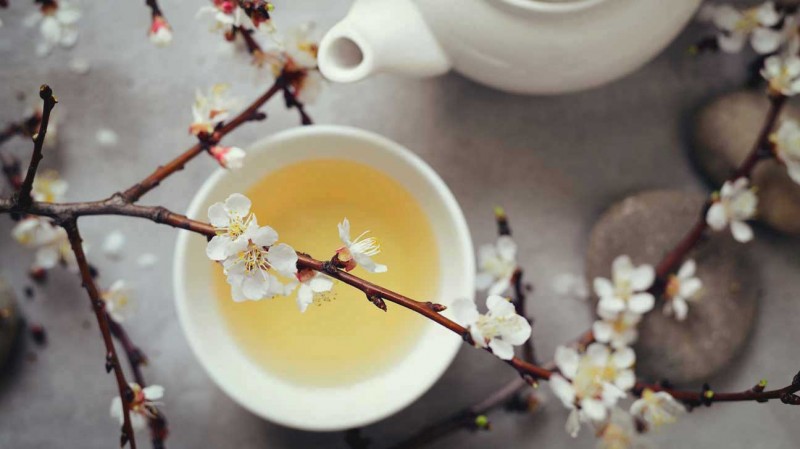
In a world where a plethora of beverage choices compete for our attention, the unassuming white tea often stands in the shadows, quietly awaiting discovery. But what if we told you that within the confines of a single cup of white tea lies a treasure trove of health benefits waiting to be unlocked? Delicate, fragrant, and brimming with antioxidants, white tea is more than just a soothing beverage; it's a true elixir for your well-being. In this article, we'll take you on a journey through the remarkable advantages that await you with every sip of this extraordinary tea.
Before we dive into the world of benefits, let's take a moment to understand the basics of white tea.
White tea, like its green and black counterparts, originates from the Camellia sinensis plant. What sets it apart is its unique processing method.
Unlike green and black teas, white tea undergoes minimal processing. This gentle treatment allows it to retain more of its natural goodness.
Two popular varieties of white tea include Silver Needles and Bai Mudan. Each has its distinct flavor profile and characteristics, making white tea a diverse and intriguing category in the world of tea.
Now that we've acquainted ourselves with white tea let's explore the myriad health benefits that it brings to the table.
White tea is a true antioxidant powerhouse. It's rich in polyphenols, which help combat free radicals in the body.
One of the most noticeable benefits of white tea is its positive impact on skin health. The antioxidants in white tea can help protect your skin from premature aging and damage caused by UV rays.
For those on a journey to shed a few pounds, white tea can be a helpful companion. It contains compounds that may aid in weight management by boosting metabolism and reducing fat absorption.
White tea promotes cardiovascular health. Regular consumption has been linked to lower blood pressure and reduced risk of heart diseases.
Emerging research suggests that white tea may play a role in cancer prevention. Its antioxidants may help inhibit the growth of cancer cells.
White tea can also contribute to improved oral hygiene. It contains fluoride, tannins, and other compounds that fight bacteria and prevent the formation of plaque.
White tea isn't just about physical health; it also supports your mental and emotional well-being.
Sipping on a cup of white tea can be a soothing ritual, offering a moment of respite from the hustle and bustle of daily life. The mild caffeine content provides a gentle energy lift without the jitters.
For those in need of a mental boost, white tea can help enhance focus and concentration. It provides just enough caffeine to sharpen your alertness without the crash later on.
In addition to its focus-enhancing properties, white tea can provide a sense of relaxation and calm. The soothing aroma and subtle flavor make it an excellent choice for unwinding after a long day.
You might be wondering how white tea stacks up against the more popular green tea.
One significant difference is the caffeine content. White tea contains less caffeine than green tea, making it a milder option for those sensitive to caffeine.
In terms of antioxidants, white tea can outshine green tea. The minimal processing preserves more of its natural compounds, giving it a higher antioxidant potential.
Now that you're intrigued by the benefits, let's delve into the art of preparing the perfect cup of white tea.
Start by selecting high-quality white tea leaves. Look for leaves that are whole or in large pieces, as these tend to offer a better flavor profile.
The water temperature is crucial when brewing white tea. Heat your water to around 160-185°F (71-85°C). Water that's too hot can result in a bitter brew.
Steep your white tea for the optimal duration, which is typically between 2-5 minutes. Be mindful not to over-steep, as this can also lead to bitterness.
While white tea is delightful on its own, you can enhance its flavor by adding a touch of honey or a twist of citrus. These additions can complement the tea's natural sweetness and create a delightful fusion of flavors. In conclusion, white tea is a hidden gem in the world of beverages. A single cup can offer you a multitude of benefits, from promoting physical health to nurturing mental well-being. It's a versatile and gentle brew that deserves a place in your daily routine.
Delicious Homemade Dry Fruit Kheer: A Nutty and Creamy Dessert
The Right Way to Eat Almonds: Benefits, Precautions, and Potential Harm
Know what to eat and what not to eat with eggs, otherwise you will cause big loss